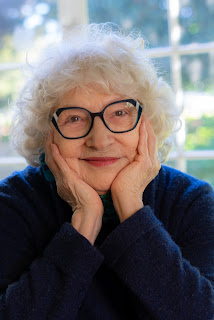Lillian Creekmore grows up at her family's popular rural spa. She successfully runs an entire hotel, yet longs for a husband. Then she meets Will Hughes. Velma Vernon accepts life on a small, struggling farm until a boy she barely tolerates proposes marriage. To accept means duplicating her parents' hard life. Alone, she leaves for the city and triumphs, not as a wife, but by being the best at her job. Velma is content until the most beautiful man she has ever seen walks into her office. This moving and darkly humorous novel follows the intertwined lives of women willing to surrender everything to a man. Purchase a copy of In Common by visiting Amazon, Barnes and Noble, or Bookshop.org. Make sure you also add In Common to your Goodreads reading list.
A Look at How Women Were Treated in the South Pre-feminism
My novel In Common, contains two characters, Lillian and Velma, who make choices that seem insane in our post-feminist time. We forget how little agency women had back then. In the 1940s, ‘50s and early ‘60s, women in the South had no power, little money, and few jobs of their own. The goal of any well-brought up white female in those days was to become a southern lady. A southern lady was not required to wear a burka, but she never left the house unarmored. A shopping trip to downtown Jackson, Mississippi, in the middle of summer, with no air-conditioning and the temperature hovering near ninety degrees, began with a bath, followed by a coating of talcum powder (in the hopeless attempt to prevent clothes from sticking to the skin). Then came the panty girdle and brassiere (worn to prevent the unseemly movement of body parts), nylon stockings, a full-length slip, and finally a nice dress. To this, she added a matching purse, hat, shoes and gloves. Thus encased, she was ready to be seen on Capitol Street, Jackson’s downtown shopping center (where she never chewed gum, or smoked, or ate anything in public).
The goal of all this trouble was to be a lady, that prized creature, treasured by men, and kept carefully on her pedestal, away from the hustle of politics or commerce. Having no money of her own, she was to wisely manage the allowance provided by her husband, run the household, have a nice dinner ready for him at night, and give birth to at least one son. She would share her husband’s politics and not bother him with complaints. Women, nice middle-class women like my mother, were not supposed to work. Working outside the home meant your husband could not support you (or perhaps control you), an insult to his dominance. A woman at one of my readings said that when she was in school in the ‘60s, she was required to take a six-week course in Communism (this was in Texas), where the most horrible part of Russian life, they were told, was the women worked.
In my family, we had plenty of formidable women. My aunt, Miss Hosford, ran a sixty-six-room hotel. One of my father’s sisters was an English professor at the local college, but only, she told me, because the public high schools did not allow married women to teach. Another sister was a lawyer and a partner in the family law firm. Aunt Leigh met my Uncle Doug in the ‘30s when she came to Mississippi buying and selling oil leases for her boss in Texas. She taught Uncle Doug the business, after which he tried to make her quit, embarrassed to have a wife cleverer at the trade than him. She pretended to stop and kept a lovely house, but she kept her own oil properties and her own bank account. She operated with sweet guile: buttering her husband’s toast and serving him breakfast in bed while she spent her money as she pleased. “Buy yourself a nice dress at Frances Pepper,” she’d whisper, “but don’t tell your Uncle Doug.”
These powerful women were treated as aberrations. My mother was not to work after she married, though she too knew how to run a hotel, could organize dinner parties for a dozen or a hundred, and copy any dress she saw in a magazine. When she tried to set up as a boutique couturier, my father made fun of her efforts. When the small business failed, he nodded, satisfied. Women should stay home where they belonged. Hard to rebel when you were legally the property of your husband. Unless a woman remained single—the dreaded old maid, a spinster—she could not have a charge account in her own name. She could not borrow money, buy property, or serve on a jury. The moment she married she lost her name. If her picture appeared in the newspaper, she was Mrs. Fred Craig or Mrs. Tom Watkins. Women were chattel, treasured chattel they were told, but entirely the possession of their husbands.
My father’s secretary Mildred went to work for his law firm right out of high school and saw more of him than my mother. Mildred accompanied him to court, took down every word said by both sides, and typed the notes at night. The next morning, back in court, my father began with the advantage of having read the previous day’s transcript. When I suggested to him that he might want to create a career ladder for talented women like Mildred, so she could move on to being a para-legal, or maybe a lawyer, he laughed. He said a career ladder was how you lost a good secretary. A year after Mother died, Daddy married Mildred and made her quit her job. She went from superb secretary to housewife, a role for which she had no preparation and little skill. Every day, she and Annie the cook sat in the kitchen watching soap operas and deciding what to have for supper. These rules were only for white women. Black women worked. If we’d had the sense to notice, we might have seen that those women cleaning our bathrooms and cooking our food were models for the strong, independent women we hadn’t yet dreamed of becoming.
I
was trained to be a southern lady, but I was a willful child and became a
willful adult. I rebelled against the rules and my place in the pre-feminist,
Jim Crow South. After Brown v. Board of Education declared segregated schools
unlawful, I argued for equality at the dinner table for years. My father won
those arguments, and I usually left the table in tears. In my books, I am still
arguing.
About the Author: Raised in the South during the civil rights struggles, Norma Watkins is the author of In Common and two memoirs: The Last Resort, Taking the Mississippi Cure (2011), which won a gold medal for best nonfiction published in the South by an independent press; and That Woman from Mississippi (2017). She lives in northern California with her woodworker husband and three cats. You can find her online by visiting her website or reading her blog.


No comments:
Post a Comment